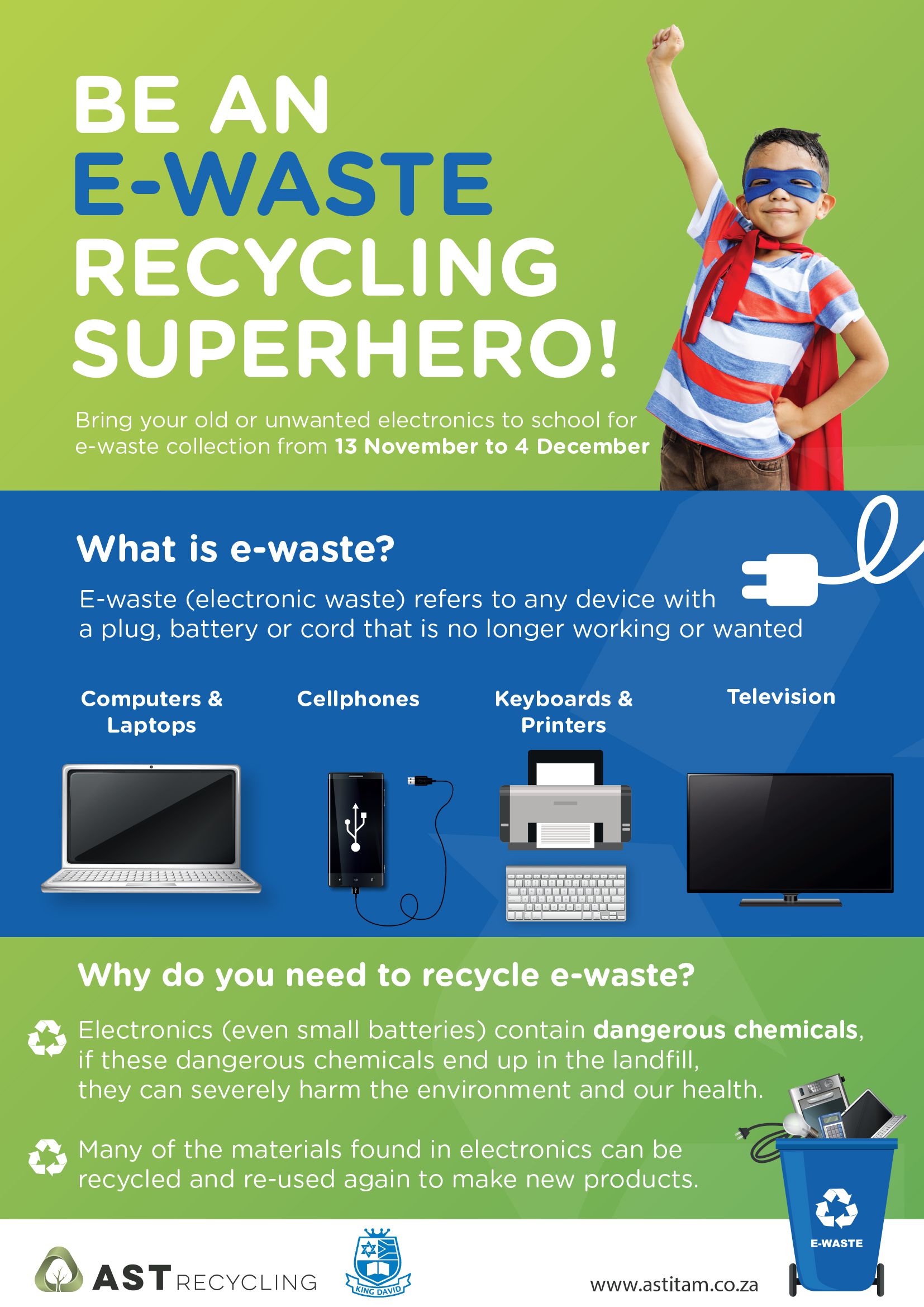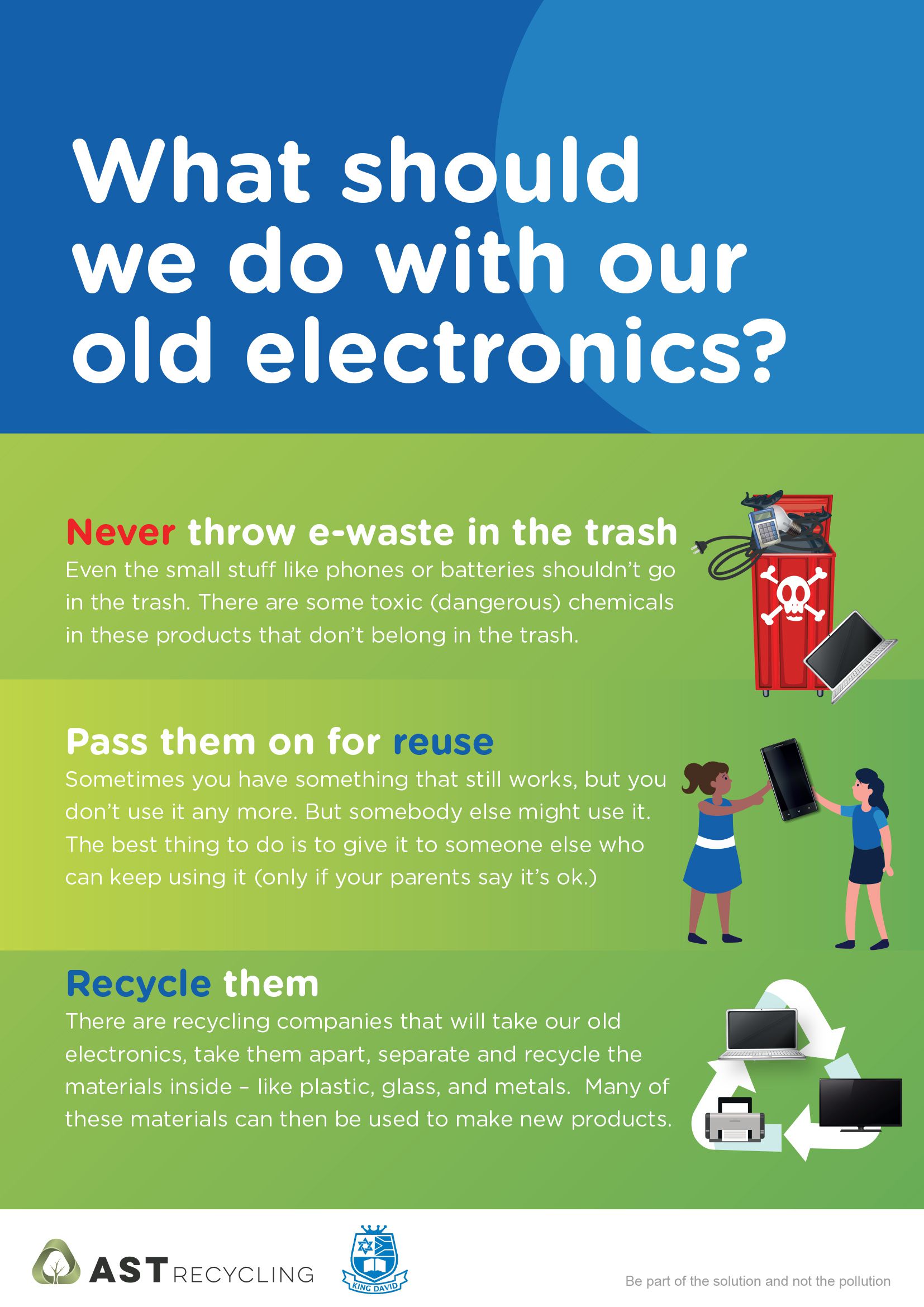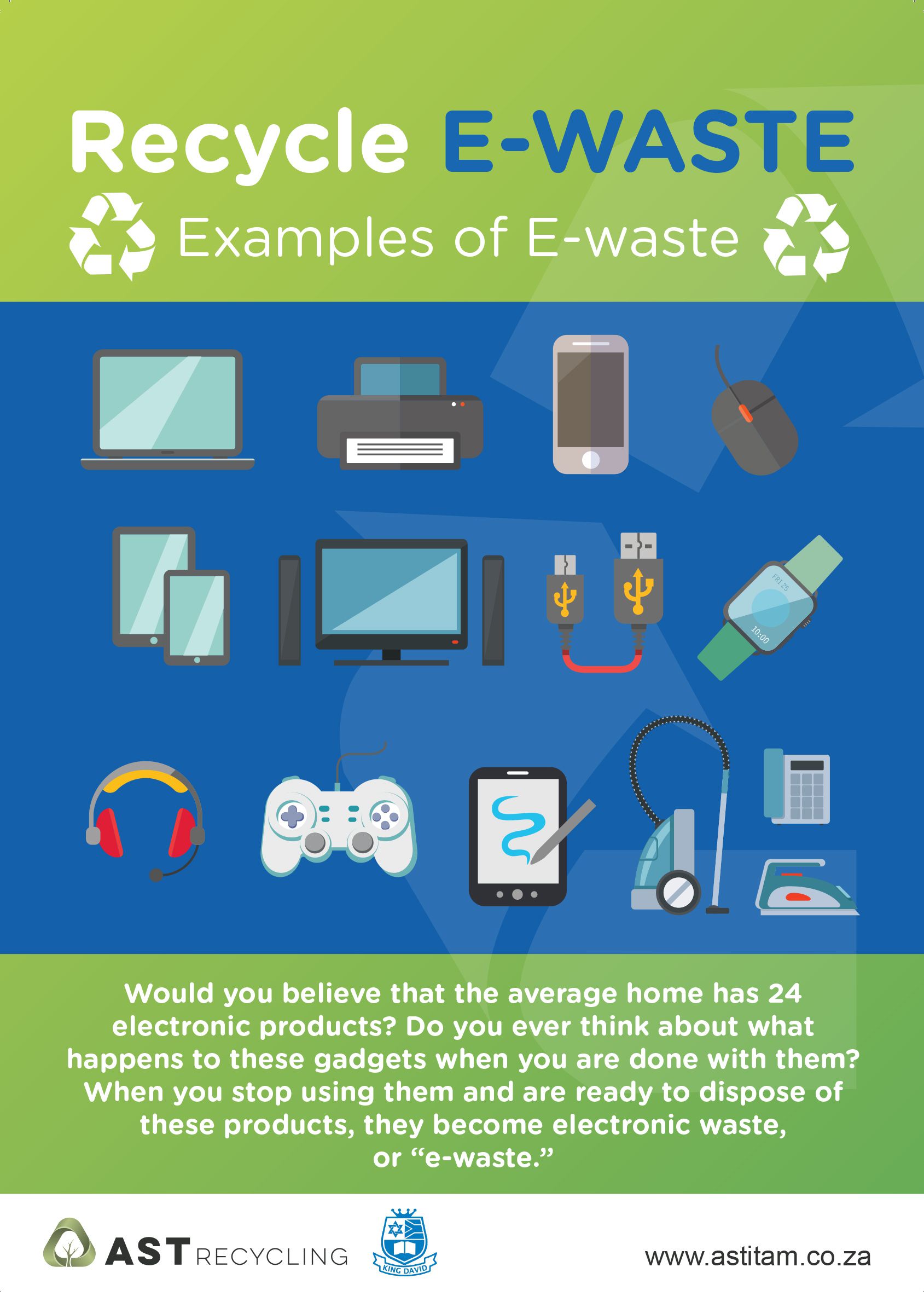AST Recycling together with King David schools launches a campaign to raise awareness of electronic waste recycling.
E-waste, resulting from any product with a power cord or a battery, is a growing waste stream that needs to be taken seriously. There are a lot of hazardous materials used to make electronics, such as brominated flame retardants, cadmium, mercury and lead, which pose significant risk to our environment through air pollution, soil and water contamination, and dangers to our health and to nearby wildlife.
In 2019, a record 53.6 million metric tonnes of e-waste was generated worldwide – an increase of 21% in just five years. And if left unchecked, it is estimated that by 2030, this number will reach 74 million metric tonnes. Raising awareness and creating easy points of collection for e-waste are crucial in addressing this growing problem.
AST Recycling together with King David schools launches a campaign that will raise awareness about the correct disposal of e-waste and benefit underprivileged schools with donations of IT equipment resulting from e-waste refurbishment. Most students do not know how to recycle electronic items, and the initiative will teach them valuable lessons.A campaign will see e-waste recycling bins placed at King David schools during November, December, and January. Students and their parents will be encouraged to bring in any e-waste that they have at home to be recycled. In addition, any of the collected e-waste that can be repaired and refurbished will be donated to underprivileged schools. All hazardous waste will be responsibly dealt with and no electronic waste will be sent to landfills.
The objective of this project is to promote the correct disposal of electronic equipment to enable the reuse and responsible recycling of these items. So much e-waste is simply discarded when it comes to the end of its useful life. It is not disposed of responsibly, and it is not assessed for the possibility of a refurbishment. By placing bins at these schools, we’re showing the learners and their parents how their unwanted equipment has value and can be of enormous benefit to others. We encourage not only the learners of the school but the community at large to be part of the solution and not the pollution.


